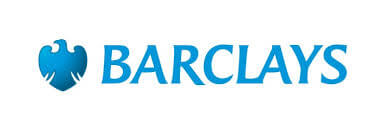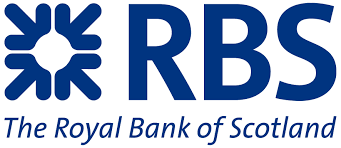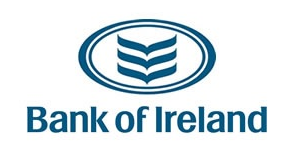




What Is A Bridging Loan? Home buyers with a cash-flow crisis can often find themselves in limbo this is where a Bridging Loan can be useful Bridging loans are there to Bridge the gap
It’s not uncommon for newcomers to property development or home movers that have not received funds for the sale of their own property to be left short of capital.
In such circumstances, bridging loans provide an ideal solution. These types of finance agreements are specifically designed for short-term funding and represent an alternative to mainstream lending.
Bridging loans are certainly the most convenient option to help people complete the sale of a house. Whatever the hold-up is for you, why not look into how a bridging loan can help you secure the property you are investing in?
Who are bridging loans for?
As a general rule, bridging loans are designed for asset-rich borrowers that do not have cash funds you are able to transfer. They provide a straight-forward lending solution to tide you over until you offload your assets.
The type of people that benefit from a bridging loan are as follows:
- New property developers
- Landlords renovating a house
- Home buyers that need a mortgage quickly
- Home movers in a chain that are waiting for the sale of your property to go through but are being pressed to complete the home you are buying
- To prevent repossession
- Auction Buyers
What’s the difference between a bridging loan and a standard loan?
Bridging loans are a short-term funding solution that is backed by security on a property. In a nutshell, they help investors out in pressing circumstances. These types of loans are “interest-only” and typically have a repayment window of between 1-18 months.
Whereas standard loans accrue interest each month, bridging loans do not have a monthly repayment plan. Interest repayments are rolled into the loan and paid on or before the agreed exit date.
Closed and open loans are available. A closed loan is when an exit date has been agreed. An open loan is when an exit date has not been agreed, and the borrower wants more flexibility - which can be highly beneficial.
Furthermore, there are no penalties for exiting the loan deal earlier than the term of the contract.
Not only that, bridging loans are more attractive to borrowers than standard loans because the application process is much more simple and quick.
The qualifying criteria for bridging loans are also capital-based rather than income based.
Companies that offer bridging loans do not determine the amount you can lend based on a multiple of your income but consider how much you are able to repay once you have raised the capital.
What are the risks of a bridging loan?
Because bridging finance is flexible, it’s a useful financial tool to have available. However, like any loan, there are risks you should be aware of before signing a contract always use a broker that is FCA regulated.
First of all, you should be aware that the interest repayment on arrears is typically high. This only becomes an issue, however, if the loan is not repaid within the agreed term.
Applicants can apply for an extension of the loan, but this will also incur a monthly arrears charge. It is advisable to check the terms & conditions around the extending of loans before making a commitment.
Bridging loans revolve around the “exit strategy”. This determines the length of the loan period and the date the loan has to be repaid.
The biggest risk is for borrowers that have taken a bridging loan out to secure your dream home before you sell your own property.
For example, if you are involved in a sale chain that breaks down, you may not be able to sell your house before the exit date. The risk here is that property can be repossessed by the lender if the house remains unsold, and a court order could be awarded to evict you from the property.
The other risk of taking out a bridging loan before you have offloaded your assets is that the loan could obstruct your ability to secure a mortgage with a bank.
Where can I get a bridging loan?
Bridging loans are a beneficial tool when buying property, but because of the risks involved, it is important to choose the right lender.
Finance is offered by various firms ranging from small lenders to large, established money lenders. Wherever you choose to purchase a bridging loan from, ensure the company is regulated by the Financial Conduct Authority (FCA) otherwise you could risk being scammed.
If you want to take out a bridging loan, contact us today and speak with one of our friendly and knowledgeable advisors. We are waiting to answer any questions you have.
With over 20 years experience you can be assured of the very best help and advice from our team call now on 0800 138 6001 or contact us via our website chat or contact form.


Get a Bridging Loan Quote Now
Bridging Loan Bridging Mortgage Instant Bridging Loan Bridging Loan Calculator Bridging Loan Quote Best Bridging Loans Cheap Bridging Loans Non Status Bridging Loan Bridging-Loan-Quotes FCA Regulated Bridging Loan Best Bridging Loan Providers How Long Does A Bridging Loan Take London Bridging Loan Bridging Loan Scotland Commercial Bridging Loan For Property Development What is a Bridging Loan Bridging Loan How Much? Bridging Loan Risks Bridging Finance Can I Qualify For Bridging How Do Bridging Loans Work Home
Natwest Bridging Loan Natwest Bridging Loan Calculator Barclays Bridging Loan Barclays Bridging Loan Calculator HSBC Bridging Loans HSBC Bridging Loan Calculator Santander Bridging Loans Santander Bridging Loan Calculator RBS Bridging Loan Calculator Halifax Bridging Loans Halifax Bridging Loan Calculator Lloyds Bridging Loans Lloyds Bridging Loan Calculator

We are registered and comply with the Data Protection Act (1998). Registration No: Z2861884 Company registered in England number 06261373 Top 10 finance Ltd TA Target Mortgages is authorised by The Financial Conduct Authority (FCA) no 725234 The FCA Privacy Policy